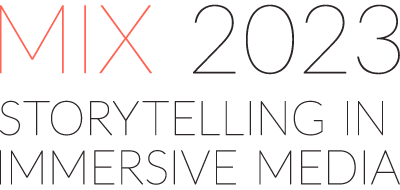MIX 2017
About MIX 2017
In July 2017 Bath Spa University hosted MIX 2017: Writing Digital Writing Digital: MIX DIGITAL 3 in Bath Spa University’s Newton Park Campus. Bath Spa University’s School of Humanities and Creative Industries, with its stellar Creative Writing Department, is at the forefront of both research into and teaching of creative practice across many forms. MIX DIGITAL has established itself as an innovative forum for the discussion and exploration of writing and technology, attracting an international cohort of contributors from the UK, Australia, and Europe as well as North and South America. From 2015 the conference became biennial and is one of the flagship conferences for the university.
Keynotes
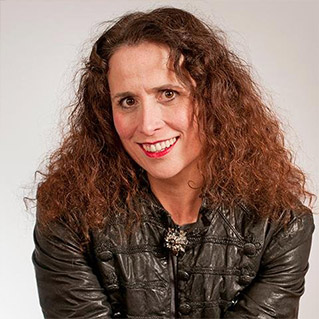 PROFESSOR CAITLIN FISHER
PROFESSOR CAITLIN FISHER
Caitlin Fisher directs the Augmented Reality Lab at York University in Toronto, Canada, where she held the Canada Research Chair in Digital Culture for the past decade. A 2013 Fulbright Chair, Fisher is the recipient of many international awards for digital storytelling including the Electronic Literature Award for Fiction (for the hypermedia novella These Waves of Girls ) and the International Vinaròs Prize for Electronic Literature (for the augmented reality poemAndromeda, one of the first poems ever created in AR). Recent work has been shortlisted for the UK New Media Writing Prize (Circle) and the Robert Coover Award (Everyone at this Party is Dead, a virtual reality novella, also selected for inclusion in the 2016 Electronic Literature Collection ). She serves on the international Board of Directors for both the Electronic Literature Organization and HASTAC, the Humanities Arts Science Technology Alliance and Collaboratory. Fisher is currently engaged in a four-year research project exploring new literary forms in augmented reality, creating long-form interactive mobile narratives.
Website: yorku.ca/caitlin/home/
Twitter: @lindencat
Pinterest: yorkarlab
Youtube: TheARLab
ABSTRACT: MIXED REALITIES: POETRY AT THE EDGE OF SCIENCE, THE DISSEMINATION OF SECRETS AND THE MAGIC LOOKING GLASS OF FAILURE
The augmented reality lab I direct exists at the intersection of art and science, but with storytelling firmly at its centre. For over twenty years, my research and creative practice has been in the area of digital literatures and my talk, here, is a mix of artist talk, excavation, and speculation. I will introduce some of the technologies we’ve used and developed and some literary projects my students and I have created over the years, some of which have never circulated beyond the lab, some of them failures along multiple dimensions which nevertheless inform both my current work and serve as magic looking glasses to machines and literatures of the near-future.
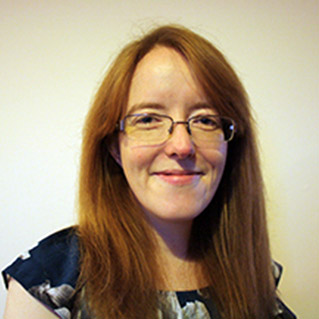 DR ELIZABETH EVANS
DR ELIZABETH EVANS
Elizabeth Evans is Assistant Professor in Film and Television Studies at the University of Nottingham. She is the author of Transmedia Television: Audiences, New Media and Daily Life (2011) and has published articles in numerous edited collections and journals including Media, Culture and Society, The International Journal of Communication Studies and Convergence. Her research explores the relationship between narrative and technology with a particular interest in audience attitudes and behaviours. Her current project interrogates how ‘engagement’ is defined, managed and valued by transmedia audiences and practitioners.
Website: nottingham.ac.uk/clas/departments/cfm/people/elizabeth.evans
ABSTRACT: ENGAGEMENT THAT’S WORTH IT: TRANSMEDIA ENGAGEMENT AS ECONOMIC AND DISCURSIVE COMMODITY
Transmedia strategies of storytelling, distribution and marketing, where content is spread over multiple media forms and technologies, have become a key characteristic of television’s embracing of digital technologies. Broadcasters are increasingly presenting digital devices as the ‘future’ of their industry and as more ‘valuable’ than traditional linear television. This has manifested in radical ways through strategies such as the BBC’s transform of youth-oriented channel BBC Three into an online only space, or how fellow UK broadcasters Channel 4 and ITV have increasingly presented their core business as a transmedia portfolio of interconnected services. It has also emerged in more mundane ways with the integration of social media and controlled participatory spaces into promotional content. Whilst many of these changes have been integrated into television culture relatively easily, others have been the source of debate and controversy over the value of both digital technologies and traditional forms of linear television. At the centre of these industrial changes has been a prioritising of audience ‘engagement’ and the ‘engaged’ viewer. What this ‘engaged’ viewer is actually doing, however, remains ill-defined, with the term functioning as a loose indicator of ‘successful’ content. In turn, the value of transmedia ‘engagement’ equally remains only loosely defined whilst simultaneously positioned as the new goal for television broadcasters.
Although some scholars have examined the notion of ‘engagement’ this is often focused on aspects of audience measurement (Napoli, 2011) or through a specific prism of participatory culture (Jenkins, Ford and Green, 2013). This paper will instead explore how audience ‘engagement’, and especially the ‘value’ of that engagement, is understood and leveraged by transmedia practitioners. Using interviews with transmedia producers, writers, marketers and strategists in the UK, US, Canada and Denmark, it will explore how transmedia ‘engagement’ is understood and used as both an economic and a discursive commodity. In particular, it will focus on how differences in the value of engagement for practitioners are shaped and contextualised by their broader industrial context, and the differences between public service and commercially-oriented media. How do the experiences of audiences feature within the production process of transmedia or digital content? How do public service ideals manifest within not only broadcaster-level strategies but also the ways in which individual practitioners value (or de-value) their audiences’ experiences? What changes occur in how ‘engagement’ is understood and valued when shifting between public service and commercial contexts? In exploring these questions this paper will address how ‘engagement’ is reconfigured to allow transmedia practitioners to position themselves, and the emergent technologies they work with, as both commercial viable and artistically challenging.
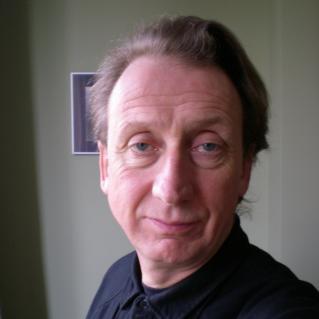 PROFESSOR JONATHAN DOVEY
PROFESSOR JONATHAN DOVEY
Jon Dovey is Professor of Screen Media at the Faculty of Arts, Creative Industries, and Education at the University of the West of England, Bristol. He has taught at Plymouth University, UWE and Bristol University teaching a wide range of film, media and digital courses in both practice and theory. In 2008 he launched (UWE’s) Digital Cultures Research Centre which he Directed until 2012.
In 2012 he became the Director of REACT (Research and Enterprise for Arts and Creative Technologies) one of four Hubs for the Creative Economy funded by the AHRC. Led by UWE and Watershed, REACT is an Arts, Technology, and Business Collaboration aiming to produce 50 innovative media prototypes in four years.
He was also Co Investigator on the AHRC Connected Communities Creative Citizens Project where he led a strand on the impact of informal creative economies on communities (http://creativecitizens.co.uk/) He is currently PI on the Ambient Literature research project http://ambientlit.com/ and Co-I on ‘Bristol and Bath by Design’ evaluating the design ecology of the region. He is currently researching and writing on ‘The Practice of Cultural Ecology’.
Website: dcrc.org.uk
Twitter: @ProffJon
ABSTRACT: SEVEN TYPES OF DIGITAL AMBIGUITY
‘The living embodies the ambiguous record of the change of the world in which it unfolds. This is the narration of the living.’ Mihai Nadin [1]
This presentation will open up some of the underlying ideas in the AHRC funded Ambient Literature research project, an investigation of the potential for situated literary experiences in digitally enabled environments. Ambiguity is not a mode of experience that one might normally assocate or want from computing experiences; clearly computers present as rational machines, subject to the laws of maths and physics and in truth I don’t want an ambiguous experience when I fire up my email system or spreadsheet in the morning. But when it comes to art and culture the situation is different. And here is hard to resist starting with William Empson’s famous excavation of ambiguity as a key to literary experience. There is already a distinguished history of the importance of ambiguous design in UX, here I want to extend that tradition for the contemporary attention economy and argue for a poetics alert to embodiment, textuality, sonics and technology that enhances awareness and understanding of the intrinsic phenomena of the world that we share.
[1] Nadin M ‘Antecapere ergo sum: what price knowledge’ AI & Society Volume 28, Issue 1, pp 39-50 Springer Verlag 2013 p 46
Recent publications include:
Citizenship, Value & Digital Culture Jon Dovey Giota Alevizou and Andy Williams in Creative Citizen Unbound ed Hargreaves I & Hartley J. (2016) Policy Press Bristol.
From Networks to Complexity David Harte, Jon Dovey, Emma Agusita and Theodore Zamenopoulos Creative Citizen Unbound ed Hargreaves I & Hartley J. (2016) in Policy Press Bristol.
Rethinking value: network connectivity in the creative economy Jon Dovey & Simon Moreton in Cultural Trends Vol. 25, No. 2 (2016).
Ambient Literature – Framing Coalescence: in Ubiquitous Computing Complexity and Culture, eds. Ekman, Bolter, Diaz, Sondergaard and Engberg. MIT Mass 2016.
Cultural Value Networks with Goetz Bachman, Jeanette Monaco and Bill Sharpe Report for AHRC Connected Communities 2012. Summary available here.
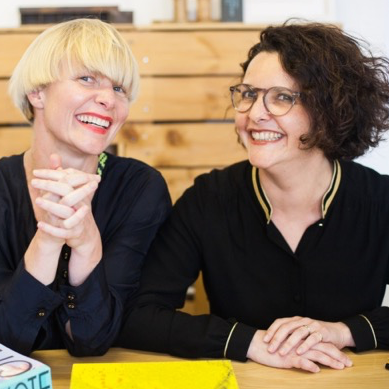 ANNA GERBER AND BRITT IVERSON
ANNA GERBER AND BRITT IVERSON
London-based Visual Editions creates surprising and delightful reading experiences in physical and digital forms, working with global commercial and cultural partners like Google, Ace Hotel and WeTransfer. Our work includes books as beautiful cultural objects, championing some of the greatest writers and designers in the world. And also digital books that bring the magic of technology to great storytelling.
Visual Editions launched in 2010, with the aim to create new kinds of story experiences. Having shifted from publishing six books and a magazine series we commission and build stories for partner brands and commercial collaborators. We’ve been nominated for quite a few awards, given talks around the world, and hailed as leading cultural entrepreneurs by the Paul Hamlyn Breakthrough Fund.
We’re proud to have all of our books as part of The Art Institute of Chicago‘s permanent collection, to see Wayne McGregor give new life to our book, Tree of Codes, as a contemporary ballet, and to be working with the very talented people at Google’s Creative Lab in Sydney on Editions At Play, a space for books powered by the magic of the internet.
Website: visual-editions.com
Twitter: @VisualEditions
Facebook: VisualEditions
Instagram: visualeditions
ABSTRACT: EDITIONS AT PLAY: TWO YEARS ON
Anna Gerber and Britt Iversen of Editions At Play talk about their collaboration with Google Creative Labs: the space they’ve jointly created that seeks to surprise and delight readers with experiments in digital books. Editions At Play believes in the marriage between technology and literature paving the way for books powered by the magic of the internet. Two years, six titles and two partnerships into their digital book making journey, Gerber and Iversen will share what they continue to dream about, what they’ve learned (including the hard stuff) and what they will try to do better next time.
Programme
Call for Papers
MIX 2017: REVOLUTIONS, REGENERATIONS, REFLECTIONS
After the success of the last three MIX conferences, MIX 2017 returns to Bath Spa University’s Newton Park Campus. Bath Spa University is the UK’s foremost provider of creative writing programmes at undergraduate, masters and PhD level and MIX is well-established as an innovative forum for the discussion and exploration of writing and technology. MIX has attracted an international cohort of contributors from the UK, Australia, and Europe as well as North and South America. MIX is now situated within the recently created international research centres, Making Books: Creativity, Print Culture and the Digital, and the Media Convergence Research Centre.
After more than two decades of innovation and experimentation, the relationship between reading, writing, form, content and delivery platform remains in flux. The ebook has taken its place alongside the print book and the multimedia story app and/or website have become familiar modes for reading and viewing. Developers are creating dramatic story and character-led narratives via independent games while interactive and immersive theatre-makers are finding new ways to engage audiences well beyond traditional theatre spaces. Television storytelling conventions continue to evolve in line with the dominance of streaming services; new reading habits and engagement strategies now surround the form of digital comics. Music exhibitors are forging increased participatory opportunities via developments in live-touring; spoken word continues to thrive at the same time as poetry film is gaining wider recognition; virtual reality and augmented reality are both making in-roads into documentary and fiction; literary forms are morphing and changing in response to the affordances of the smartphone and tablet; pervasive and locative media are shaping how literature is understood and read. Digital media technologies foster creative ways of telling stories across multiple platforms. New media hasn’t been ‘new’ for quite some time and the word ‘digital’ is rapidly becoming redundant as technology becomes more deeply enmeshed within our cities, our homes, our lives.
In this context, a conference that looks at where creative writing, storytelling and media creation intersects with and/or is dependent upon technology should be as interdisciplinary as possible, and that’s what we are aiming for with MIX 2017. The conference will host a vibrant mix of academic papers, practitioner presentations, seminars, keynotes, discussions and workshops. Alongside scholars and researchers, artists, creative writers and creative technologists interested in literary forms are welcome to submit proposals.
The themes for this year’s conference are revolutions, regenerations and reflections. We would like to encourage the submission of research papers and artist/practitioner presentations that address these themes in the following ways:
- Revolution: science and writing; turning points and key moments in the development of digital literature; writing in and on urban spaces; 3D environments; writing and narrative using virtual reality and augmented reality; transnational creativity; ambient literature
- Regeneration: young writers and the future of creative writing; new directions and new hybrid forms; remix; hybridity; new possibilities offered by new technological platforms and tools
- Reflection: scholarly or practice-based papers that focus on practice that resides at the intersection of writing, storytelling, media creation and technology; the history of the book and other media forms and how those histories inform present day reading, consumption, publishing and exhibition practices; work which investigates and forecasts the future of reading; digital writing pedagogy
We are interested in work that takes a wide variety of forms, including digital fiction and digital poetry, participatory media, digital art and text, collaborations between writers and technologists, hybrid and cross-media practice, transmedia practice, as well as our on-going themes of the future of the book, new forms of publishing, convergent media cultures and new forms of digital curation. We’ll also look for papers and presentations on digital and interactive theatre-making, including scriptwriting, performance and technology, and ambient literature, including mobile, locative, pervasive and other site-specific forms. As in previous conferences, papers that focus on pedagogy in any of these fields are also welcome.
We will have several strands of discussion, and these will include transnational creativity as well as interactive documentary; the Bristol-based interactive documentary group, iDocs, will offer a series of screenings. The second of three new works commissioned for the AHRC-funded research project, Ambient Literature, will be launched at MIX 2017.
NAWE, the National Association of Writer in Education, will be joining BSU to curate the pedagogical strand of the conference. In the teaching of creative writing, from primary to postgraduate level there is an increasing need to incorporate cross media practice. How can we teach the digital aspects of writing? Innovative practice requires innovative pedagogy. We are keen to receive papers from those who work with creative writing at all levels, primary, secondary, community and post graduate, and to hear about teaching methods, and innovative projects. We welcome submissions from educators who are also artist/practitioners who incorporate their creative practice into their teaching.
In addition to this Call for Papers, we will also issue a Call to digital writers and artists for entries to the Exhibition. Further information will be published shortly.
Workshop sessions will be offered on aspects of digital making, transmedia practice, interactive narratives, ambient literature and other related topics. Workshops are intended as a space to share innovative practice into the making of digital writing and related themes. We invite proposals from anyone interested in leading one of the workshops as part of this Call – see below for how to submit proposals for workshops.
The conference will also host the launch of the Special Issue of Convergence: the International Journal of New Media Technologies: Writing Digital: Practice, Performance, Theory. This Special Issue arose from themes developed for MIX 2015. A new Call for Papers for an open access peer-reviewed Journal issue will be launched at MIX 2017.
Bath Spa University Conference Committee: Co-Directors Kate Pullinger and Lucy English, Executive Producer Bambo Soyinka, Exhibition and MediaWall Producer Anthony Head, Event Producer Gavin Bower, Comms Producer Steve Hollyman, Workshop Producer Matthew Freeman, Exhibition and Admin Coordinator Abbi Cross.
MediaWall Call
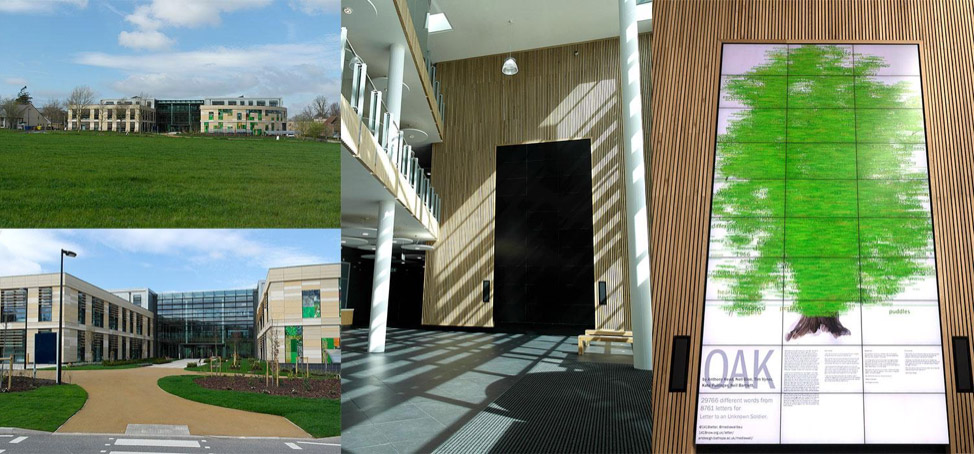
MEDIAWALL COMPETITION
WRITERS and ARTISTS WANTED FOR NEW LITERARY ARTS COMMISSION
The biannual conference, MIX 2017 (www.mixconference.org) has teamed up with Paper Nations to commission a writer or artistic team to create a new literary artwork for the Bath Spa University’s MediaWall.
For the month of July 2017, we want to commission a new artwork by an artist of international standing, launched as part of the MIX 2017 conference. The artwork will need to include original writing from young people age 8-14. The aim is to encourage a high level of engagement from all young people across England and we would welcome innovative methods for mass participation such as crowdsourcing.
Following the successful delivery of the artwork the Paper Nations team may wish to work with you to further develop the scope of your project. We are keen to use the MediaWall project as a model of best practice for embedding digital writing outreach programmes in schools across England and especially the South-West.
ABOUT PAPER NATIONS
Funded by Arts Council England, Paper Nations is the country’s first and only creative writing hub for young people. This ambitious project brings together the best and most innovative arts organisations, creative writers and educators with a common purpose: to inspire a creative nation of young writers.
The partnership of Bath Spa University, Bath Festivals and The National Association of Writers in Education will use a grant of £600,000 from Arts Council England to develop and deliver a three year programme. The consortium will work with 100 schools and a thriving community of regional arts organisations to create opportunities for pupils from deprived areas to work with nationally-recognised creative writers. A research-led professional development programme for teachers and writers will also be devised.
ABOUT MEDIAWALL
MediaWall is a uniquely positioned digital gallery space consisting of a large set of 55 inch screens viewable in daylight. It is situated in the Newton Park Campus of Bath Spa University, built into the brand-new Commons building and surrounded by green fields, hills and trees. The nearly 8 metre high, 3×10 screen wall stands like a monolith awaiting an inscription.
Since its launch in June 2014 the MediaWall has exhibited a number of artworks including those by international artists Julian Opie and Bruce Munro, and the text-based OAK, which was a response to Letter to the Unknown Soldier.
This is a rare opportunity to create a literary artwork that can be shown at very high resolution (e.g. 1920 x 6000 pixels) in daylight (unlike a projection).
REQUIREMENTS
Your proposal needs to be related in some way to text-based narrative. Your concept could be software/data-driven, interactive, live, internet/mobile linked, sensor or camera-driven.
Your proposal will need to include original writing from Young People age 8-14 in Schools from the South-West of England.
Your proposal needs to address the themes and priorities of Paper Nations. These include helping young people to enjoy creative writing, inspiring a creative nation of young writers, exploring ideas for the future of writing with young people and reaching out to disadvantaged communities within the UK.
The writer/artist or writer-artist team needs to be able to realise their idea technically (with appropriate advice and support from the MIX team).
We expect that the artist will be able to start working on the project from January 1st 2017 (with some consultation and preparatory work in Dec 2016). We anticipate that the artistic team will dedicate 30 to 60 days to the project in total.
The artist/s will also need to be available for a minimum two-day visit in March or April, as well as be present for the week before conference up to and including the last day of the conference which runs from 10 -12 July 2017 (7 days in total).
ARTIST BUDGET
The award of £8000 must include a budget covering:
- Artistic Fees and Expenses.
- Travel, subsistence, and accommodation for a planning and scoping meeting in Bath between November 2016 and July 2017.
- Travel, subsistence, and accommodation to setup and test in advance and present your work at the MIX DIGITAL 4 conference.
- For 6-12th July, you will need to book accommodation on campus at a cost to the budget of £70 per person per night.
- Equipment needed to support your proposal (ownership of any equipment purchased via the bursary will remain with BSU).
- The University will provide basic technical support needed for the installation of the work; you would need to budget for advanced development, if required.
- Communicating with Schools, parents and children online. Paper Nations will provide a framework for communication and PR , but you will need to outline a budget and plan for any bespoke methods of public communication and engagement.
ELIGIBILITY
Technically self-sufficient writer/artist or writer-artist team from anywhere in the world.
Not a current Bath Spa University student, member of staff or recent graduate (< 3 years).
CRITERIA
- Clarity of proposal
- Achievability of proposal
- Suitability of the proposal to the unique features of MediaWall.
- Potential for engagement with Young People and Schools
- Appropriateness of proposal to Paper Nations themes and strategic priorities.
- Viability of budget
MEDIAWALL TECHNICAL SPECIFICATIONS
- MediaWall is powered by one or two PC’s with a 6 output graphic card.
- MediaWall can be treated as one large screen or any number of smaller screens (depending on the software created for it).
- There are many floor points in the 10m+ space in front of the wall, to connect peripheral devices, sensors, power etc.
HOW TO APPLY
For questions about the MediaWall and other technical aspects please contact Anthony Head ().
For questions about the scope of the call and the Paper Nations project please contact Bambo Soyinka ().
Call for Poetry Films
The themes for this year’s conference are revolutions, regenerations, reflections. We would like to encourage artists/poets and digital writers to submit poetry films/ film poems/video poetry to be screened during MIX in our Viewing Theatre at Newton Park campus. Poetry films/ film poems/ video poetry is an emerging genre that fuses the use of spoken-word poetry, visual images, and sound to create a stronger representation and interpretation of the meaning being conveyed.
HOW TO SUBMIT YOUR FILMS
Short films should be submitted via email using a direct link to Youtube, Vimeo or an open link to Dropbox or WeTransfer. The email subject line should read ‘Your Name; Poetry Film Submission’ and the body of the email should include a 50-word description of the film.
Maximum 2 submissions per artist, these can be sent in the same email. This email should be sent to by Wednesday 1st March.
The films will be selected and curated by Lucy English, Reader in Creative Writing at Bath Spa University, and Zata Banks (founder of PoetryFilm research art project https://poetryfilm.org)
VIEWING THEATRE TECH SPECS
4K HD projector and 5.1 surround sound
REQUIREMENTS
Partners
PAPER NATIONS
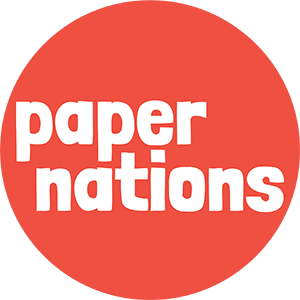
Funded by Arts Council England, Paper Nations is a new creative writing hub for young people. Led by Bath Spa University and working in partnership with Bath Festivals and the National Association of Writers in Education, this ambitious project brings together arts organisations, creative writers and academics with a common purpose: to inspire a creative nation of young writers.
At the end of 2016, Paper Nations put out a call to writers and artists in order to commission a new literary artwork for the conference. The brief was a piece of work that would showcase original writing by young people through Bath Spa University’s MediaWall – a uniquely positioned digital gallery space consisting of a large set of 55 inch screens viewable in daylight.
You can read more about the MediaWall here.
THE WRITING PLATFORM

The Writing Platform is a website dedicated to arming writers with digital knowledge.
The website is a free online resource for writers and poets – whether they are emerging or established, traditionally published, self-published or not yet published – who are looking for neutral and best practice information about writing in the digital age in order to inform their practice and career choices.
The Writing Platform launched in spring 2013 in collaboration with Kate Pullinger and The Literary Platform. Since 2016 it has been edited by Kate Pullinger and Donna Hancox in association with Queensland University of Technology and Bath Spa University.
You can read more about The Writing Platform in this introduction by Editorial Director, Kate Pullinger.
POETRY FILMS
The themes for this year’s conference are revolutions, regenerations, reflections. The films will be screened during MIX in our Viewing Theatre at Newton Park campus. Poetry films/ film poems/ video poetry is an emerging genre that fuses the use of spoken-word poetry, visual images, and sound to create a stronger representation and interpretation of the meaning being conveyed.
The films have been selected and curated by Lucy English, Reader in Creative Writing at Bath Spa University, and Zata Banks (founder of PoetryFilm research art project poetryfilm.org)
